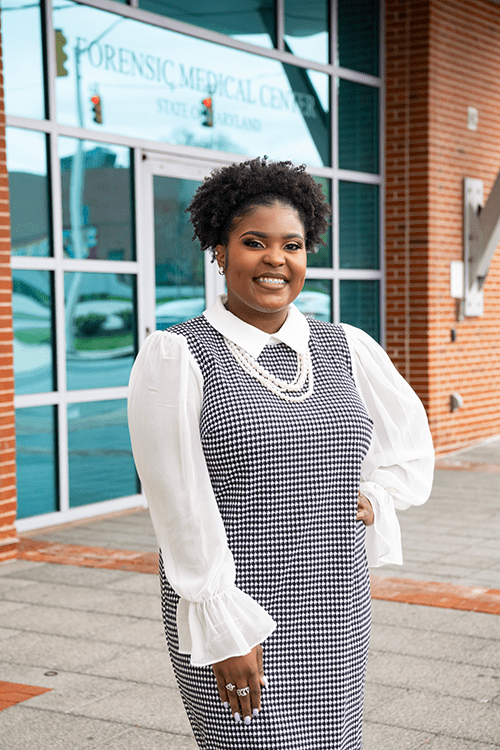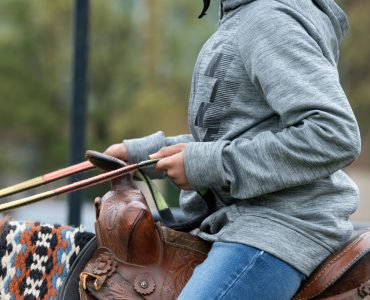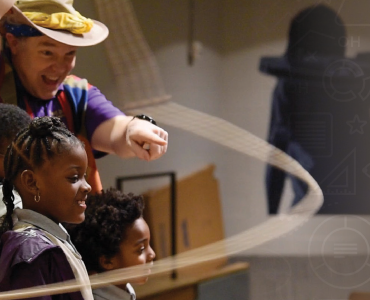
Fahren Nipple, MS, is a surprisingly lively person for one who spends her days with the dead.
The 26-year-old is an autopsy assistant in the Office of the Chief Medical Examiner in Maryland (OCME) as well as the assistant program director for the Master of Science (MS) in Forensic Medicine at the University of Maryland Graduate School, a program from which she graduated in 2021. In this field, she can see the most difficult endings to human life. Yet Nipple has a certain calm geniality that cannot be missed even when she’s speaking with respectful reverence about the importance of her job. Perhaps that’s because she doesn’t see her work as sad or macabre but rather paying forward an old debt.
“I have a disease called hidradenitis suppurativa that strikes your sweat glands,” she says from her office at OCME, which is also where the MS program is housed. “In eighth grade, I had a surgery where the doctor removed the sweat glands from under my armpits. To help me heal quicker, he used cadaver skin.”
As one might expect from an eighth-grader, her first reaction was along the lines of “What do you mean you’re using a dead person’s skin on me?”
“He explained to me how the dead can help the living,” she continues. “Ever since then, I was interested in forensics.”
A native of Georgia, Nipple took elective courses on the subject in high school and, as a student at Albany State University, majored in forensic science with a minor in biology. (Interesting side note: She was also Miss Albany State 2019-2020.) Although she eventually wanted to go to medical school to become a medical examiner, she opted for graduate school first and chose the University of Maryland, Baltimore (UMB) program because it promised diverse hands-on experience, particularly in autopsy, which was her primary interest. And with the program housed at OCME, there were natural networking opportunities.
Experience she received. Prior to graduation from UMB, she spent four months shadowing autopsies and was hired by OCME a week after graduation. There, she is part of a team that investigates any death that appears non-natural including suspicious circumstances and anyone deceased under age 18. (She also works for a private firm that does autopsies for loved ones who request one.)
She says that while medical examiner work requires a strong stomach and ability to work with difficult smells, the work is not as grim as one might believe.
“Here at the medical examiner’s office, I tell people to picture the TV show ‘Grey’s Anatomy’ where the residents are looking down on a surgery in a big, bright open room — that’s what it’s like here,” she explains. “It’s not scary at all and you’re working with a team of people. … I tell people, ‘You should be more afraid of the living than the dead.’ ”
Mario M. Alston Sr., deputy chief autopsy supervisor at OCME, describes Nipple as a dedicated worker with the willingness to learn and grow. “Fahren has unique characteristics such as always being positive and kind [that] show through her work delivery,” he says. “The qualities needed to work for [OCME] are hard work, extensive knowledge of the human anatomy, and great customer service skills, and Fahren has all of them.”
Nipple was on her way to pathology assistant school when Ling Li, BM, MM, professor of pediatrics at the University of Maryland School of Medicine, a board-certified pathologist, and the MS program director, reached out with the opportunity to become the MS assistant program director. It was a hard decision to bypass the pathology assistant degree, but one she feels was right.
“I benefited from going through the program, and I can mentor the students because I’ve been where they are,” she says.
“Another reason I took this [faculty] job is to recruit,” she adds, explaining that forensics is an expansive field offering many career opportunities in toxicology, pathology, medicine, DNA analysis, investigation, and more. And the Graduate School program is unique in that students get to shadow all the diverse facets of the field.
Still, it’s not always an easy job and it took her a month — and some therapy — when she first began work at OCME to settle into the job. She has examined children, suicides, burn victims, and homicides. Because OCME is the only such office in Maryland, the workload can be heavy. During the COVID-19 pandemic when she first began the job, she and her co-workers were working in shifts to manage 30 to 50 cases a day. While she acknowledges that you can see the worst of the worst, she says the work has taught her to better cope with death and she always goes back to the importance of the service she is providing.
“Autopsy to me is my way of giving back,” she says. “The deceased helped me to heal, and I look at this as a way to help family members, to help solve the mystery of what happened to the individual. It’s my way of giving back to the community.”



